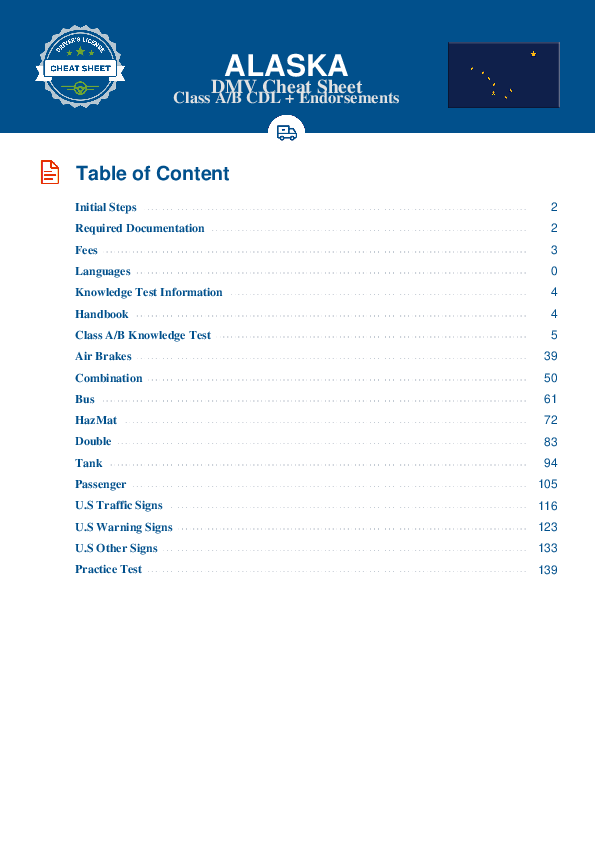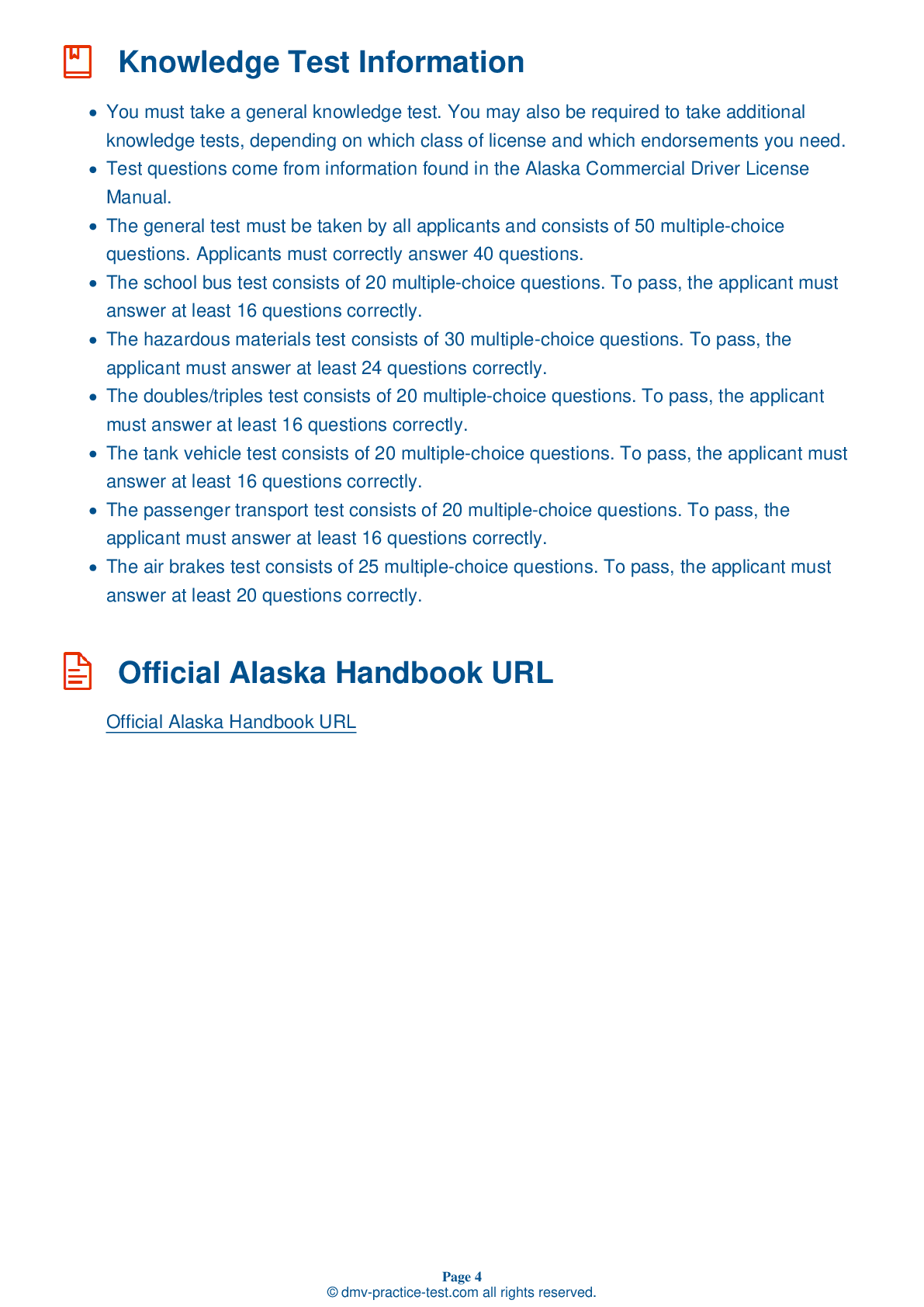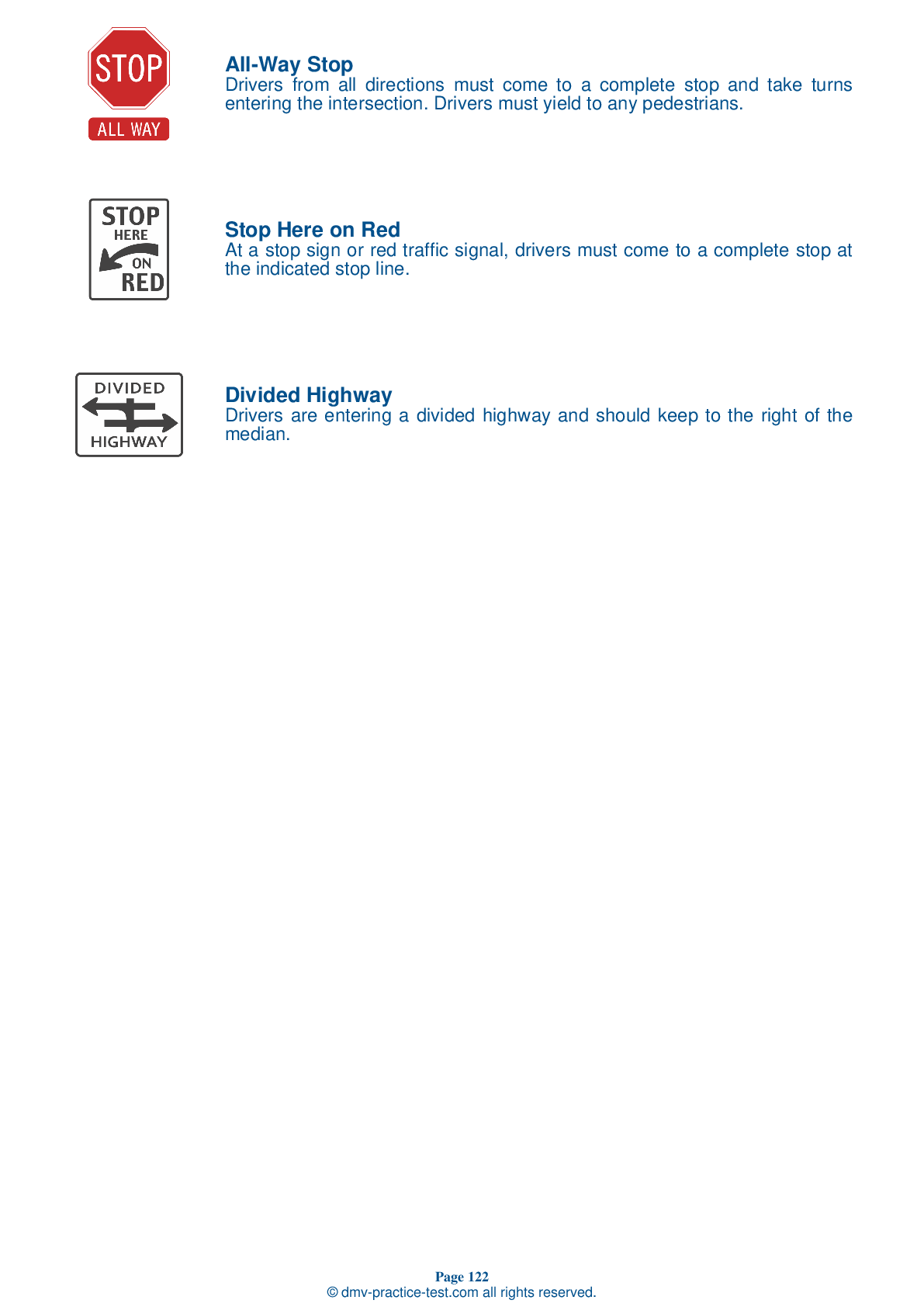Passenger Endorsement | Alaska 2026 #2
Train for FREE with our Alaska CDL passenger endorsement practice test online. The official exam test consists of several obligatory parts, with all of them checking your knowledge of different blocks of road rules. If you need to obtain a AK DMV passenger endorsement in 2026, practice as much as possible. Free sample tests published on our website will help you check and improve your knowledge and boost your grades. Please bear in mind that DMV requirements for issuing a CDL permit with passenger endorsement may vary from state to state.
1 . If the brakes pull to one side or the other when used:
If the brakes pull to one side or the other when used, it is an indication of brake trouble.
2 . When starting from a stop:
To avoid hitting anything behind you, make sure that your vehicle does not roll back when you start from a complete stop.
3 . In cool weather, as the temperature begins to rise and ice begins to melt:
As the temperature begins to rise and ice on the road begins to melt, the road surface will often become even more slippery. Water from the slight melting will sit on top of the ice, decreasing the available traction even more. Always decrease your speed and drive with caution when traveling on slippery surfaces.
4 . When starting an engine, warning lights and buzzers should:
After starting a vehicle's engine, the warning lights and buzzers for oil, coolant, charging circuits, and the Anti-Lock Braking System (ABS) should go out right away.
5 . When making a tight maneuver, you should:
It is important for you to be aware of your surroundings at all times. To do this, regularly check your mirrors. You should make a particular point of checking your mirrors when merging, changing lanes, turning, and performing tight maneuvers.
6 . The two indicators that determine when you should upshift are:
There are two indicators that determine when you need to shift into a higher gear. One indicator is the engine speed (rpm). You should read your vehicle's manual to learn its rpm range and shift up when you reach the top of that range. The other indicator is road speed (mph). You should learn which speeds each gear can accommodate, then keep an eye on the speedometer and shift up as needed.
7 . Black ice is:
Black ice is a layer of ice that is thin and clear enough for the road to be visible through it. The surface will look like a wet road. Always be alert to black ice if the road looks wet when the temperature is below freezing.
See the exact questions that will be on the 2026 Alaska DMV exam.
99.2% of people who use the cheat sheet pass the FIRST TIME
Lillian MCcranie explains how our CDL study guide was helpful in passing the exam and recommends it to everyone.
Cameron tells us how he purchased the CDL exam, and found it to be a useful tool which helped him pass the exam and find a job.



